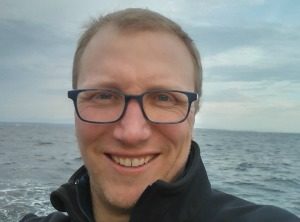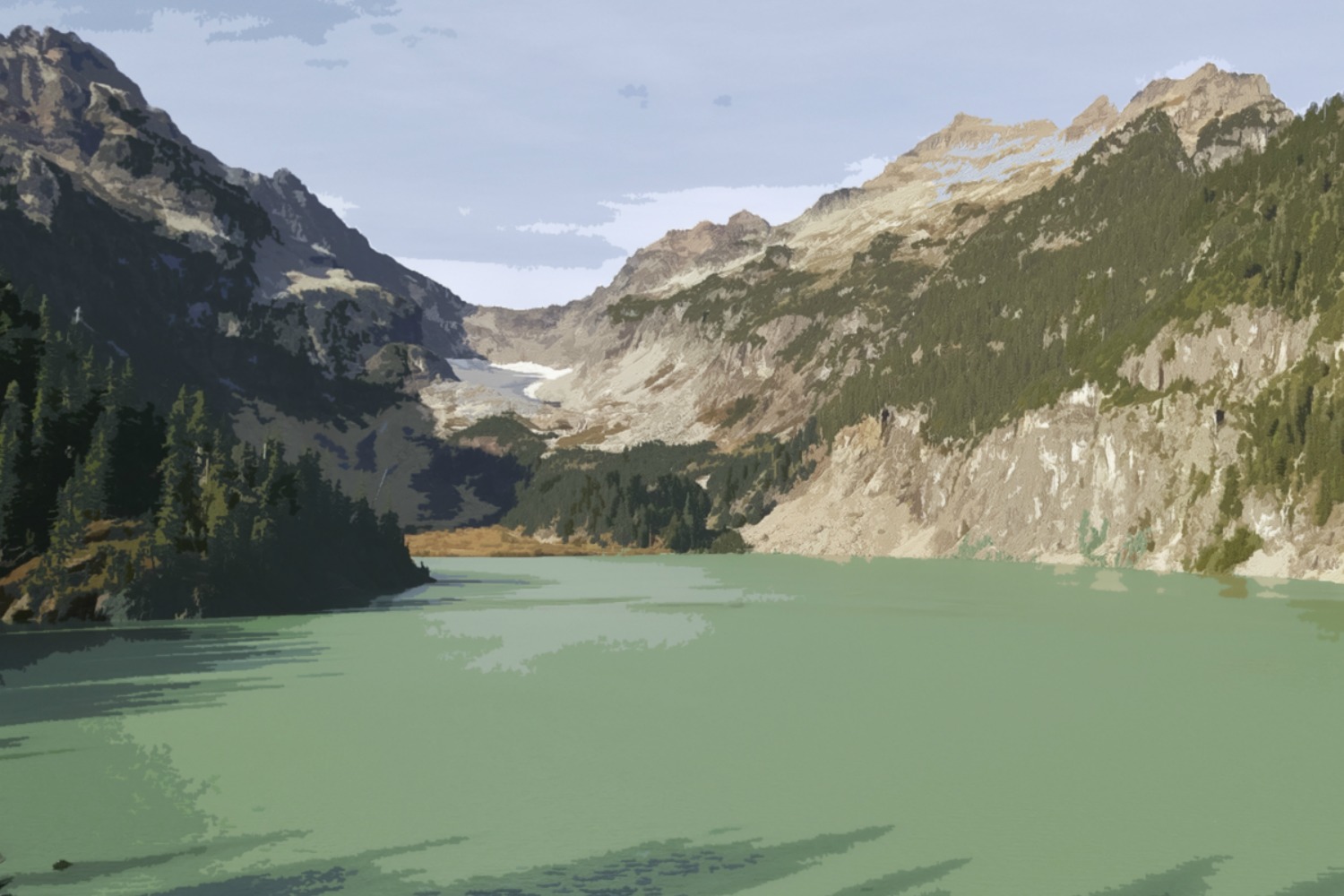We’re just a couple weeks away from the 2016 Alumni Lecture Series featuring Belden Lane. A renowned author, theologian, and wilderness mystic, Belden will join us for a unique evening of compelling ideas and thought-provoking stories on Friday, July 22, and a two-day retreat on July 23-24, exploring the restorative capacity of nature and the life-changing ideas of mystics from a variety of traditions. Here, we talk with Ned Abenroth, a student at The Seattle School and one of the organizers of this year’s Alumni Lecture Series, about his appreciation of Belden Lane, the power of wilderness spirituality, and why he’s looking forward to the upcoming events.
First off, for those who are not familiar with Belden Lane, why should we be interested in participating in these events?
Belden captures you immediately with his storytelling, his depth of spirit, his wisdom, and his down to earth saltiness. Here is a man who spent his career as a theologian at a Jesuit University. He has the intellectual chops to keep a conversation spinning at a very high level, and yet he never allows that to show up in a way that intimidates or confuses—he has a very personal style of relating. He is so humble and eager to learn from everyone and so ready to bless and encourage all with whom he crosses paths. When he speaks, those around sit up and listen, as he is one who embodies what it means to be an elder as well as anyone.
Why is the concept of wilderness so meaningful? What do you think we might be able to learn from both physical and metaphorical wildernesses?
For better and for worse, we seem to need to be undone from time to time in order to find our way again. We cease being astonished at God’s amazing presence staring us right in our face, closer than our very breath, and we need to find a place in which our neat categories for God fall apart and we are stunned again, so that we can hear the “sound of sheer silence” in which Elijah heard God at the mouth of the cave. This can be soothing or disorienting, inspiring or a place where the trap door to despair opens and we fall downward into grief. But whatever it is we need at that time, wilderness cracks us open to experience our smallness as well as our place in the family of things. In this sense, it is sacramental and full of God’s fingerprints and presence.
It strikes me that the major theophanies and other engagements with God in the scriptures happened not in the temple or even in the city, but up on the mountain or out in the desert—which is to say out in wilderness. Why are we still missing this? Going out and reading the “Green Scriptures,” contemplatively attending to the natural creation that predates all of the world’s written scriptures by 13 billion years, is a spiritual practice that is as old as Adam and Eve.
 I’ve spent enough time dealing with cancer, both my own and close family members, to have experienced the connection between spending time in nature and the healing that this can bring when we’re wandering in an inner wilderness. My experience is that if we hang out there long enough, we’ll be deeply met and nourished, and when we return we’ll be more awake to the presence of God that is not only out in the woods, but also at work, at home, and in the eyes of everyone we meet.
I’ve spent enough time dealing with cancer, both my own and close family members, to have experienced the connection between spending time in nature and the healing that this can bring when we’re wandering in an inner wilderness. My experience is that if we hang out there long enough, we’ll be deeply met and nourished, and when we return we’ll be more awake to the presence of God that is not only out in the woods, but also at work, at home, and in the eyes of everyone we meet.
We seem to need to be undone from time to time in order to find our way again.
But it isn’t just about us, or the benefit that being in wilderness brings to us. It is also a place where we experience this world as it has existed for most of history, and we become painfully aware of humanity’s impacts on this globe. Wilderness is not just a thin spot, a magical place to encounter God, it is a destination in itself, with a heartbeat and a story to tell. By spending time not only with God out there, but also with the characters we encounter, we begin to see our environmental responsibility to reduce our impact on all of creation. Thus physical wilderness calls us to step deeper into the bind of how to live life back home in a way that is honoring to the beauty which God has made. In a sense, by muddying up what we thought we knew to be true and calling us to mission, it creates another level of wilderness for us back home. I’m currently experiencing this sense of being both lost and newly oriented when I’m at the meat counter or indeed in any section of the grocery store.
This year’s Alumni Lecture Series is presented in partnership with Illuman of Washington, an organization you’re quite familiar with. Can you tell us a bit about your involvement with Illuman?
I first encountered Richard Rohr back in 2002, and what he was saying at the time simply blew me away. Ten years later I finally got out to one the of the Men’s Rites of Passage (MROP), which Richard and others started back in the late ‘90s, and I knew immediately that this work was something I wanted to help bring up to Washington state. My health prevented me from moving on this urge as soon as I would have liked, but now our Illuman community is established here in Washington and it’s growing and thriving, full of all kinds of men from different walks of life and different faith expressions. Illuman was birthed out of the thousands of men who have attended an MROP and wanted to continue on a spiritual path in a manner that was not readily available back home for most people. The ethos of authenticity, love, and avenues for personal transformation continue to surprise me whenever I’m with these men, leaving me invariably astonished. There is an eagerness of those involved to go deep in the spiritual life, to confront their own shadow, to grow in connection to others and God, and to serve the world.
And that’s how you first connected with Belden, right? How did that lead to this year’s events with The Seattle School?
I’m so grateful and lucky to have spent quite a bit of time face-to-face with Belden in the last four years, experiencing his storytelling in person. The Men’s Rites of Passage (MROP) he led back in 2012 did more to prepare me for my dance with death and battle with cancer than any other thing I could have possibly done. Then in 2014, Paul Steinke and I were on an airplane, going down to Arizona for the MROP. When we sat down in our seats he pulled out Belden’s book The Solace of Fierce Landscapes and asked me if I had ever heard of Belden Lane. I grinned and said, “Paul, you’ll get to meet Belden in a few hours!” In true Paul fashion, he quickly asked me if we could get him to come up to Seattle. It took us two years, but here we are! Besides helping plan the event, Paul asked me if I would also be willing to do some storytelling myself on Saturday evening, as the tradition for the Alumni Lecture Series is to feature someone from The Seattle School next to the main speaker.
Who are some of the other voices we can expect to hear from during this series?
There are so many! Belden will add in some content about the Desert Mothers, those sacred women who, along with the Desert Fathers, helped shape Christian mysticism. I’ll bring some of Mary Oliver’s work, who perhaps as much as any poet in the last century has invited us to walk into the wilderness with great expectations for meeting the Christ.
And I expect to hear from the living and breathing saints and mystics who attend! All the participants will be invited to not just take in this experience for themselves but to bless others with what is stirring inside of them. It looks to be a amazing weekend.
The 2016 Alumni Lecture Series with Belden Lane is July 22-24. Learn more and register for the evening lecture, “Wilderness, Storytelling, and the Healing of Brokenness,” and the two-day retreat, “Nature Wandering as Spiritual Practice,” both on our event calendar.

